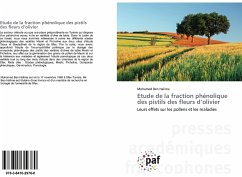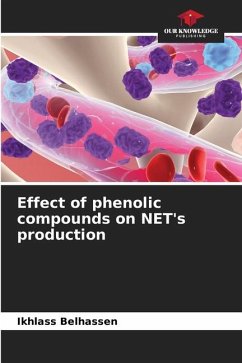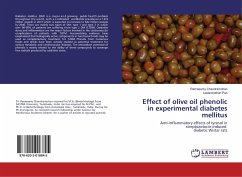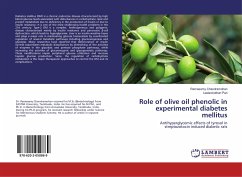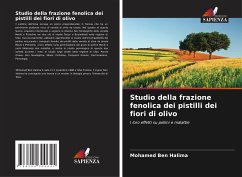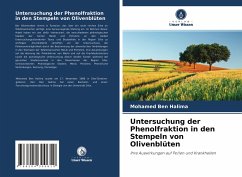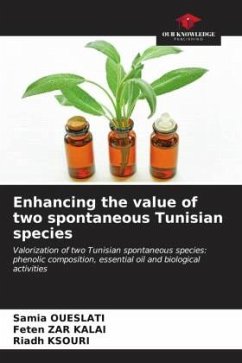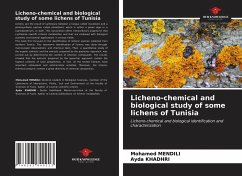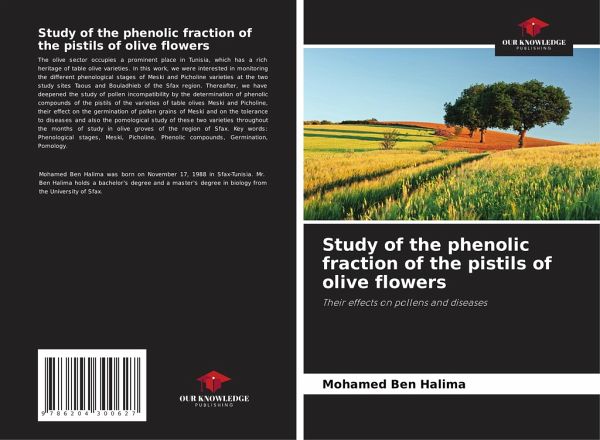
Study of the phenolic fraction of the pistils of olive flowers
Their effects on pollens and diseases
Versandkostenfrei!
Versandfertig in 6-10 Tagen
30,99 €
inkl. MwSt.

PAYBACK Punkte
15 °P sammeln!
The olive sector occupies a prominent place in Tunisia, which has a rich heritage of table olive varieties. In this work, we were interested in monitoring the different phenological stages of Meski and Picholine varieties at the two study sites Taous and Bouladhieb of the Sfax region. Thereafter, we have deepened the study of pollen incompatibility by the determination of phenolic compounds of the pistils of the varieties of table olives Meski and Picholine, their effect on the germination of pollen grains of Meski and on the tolerance to diseases and also the pomological study of these two va...
The olive sector occupies a prominent place in Tunisia, which has a rich heritage of table olive varieties. In this work, we were interested in monitoring the different phenological stages of Meski and Picholine varieties at the two study sites Taous and Bouladhieb of the Sfax region. Thereafter, we have deepened the study of pollen incompatibility by the determination of phenolic compounds of the pistils of the varieties of table olives Meski and Picholine, their effect on the germination of pollen grains of Meski and on the tolerance to diseases and also the pomological study of these two varieties throughout the months of study in olive groves of the region of Sfax. Key words: Phenological stages, Meski, Picholine, Phenolic compounds, Germination, Pomology.



